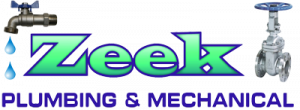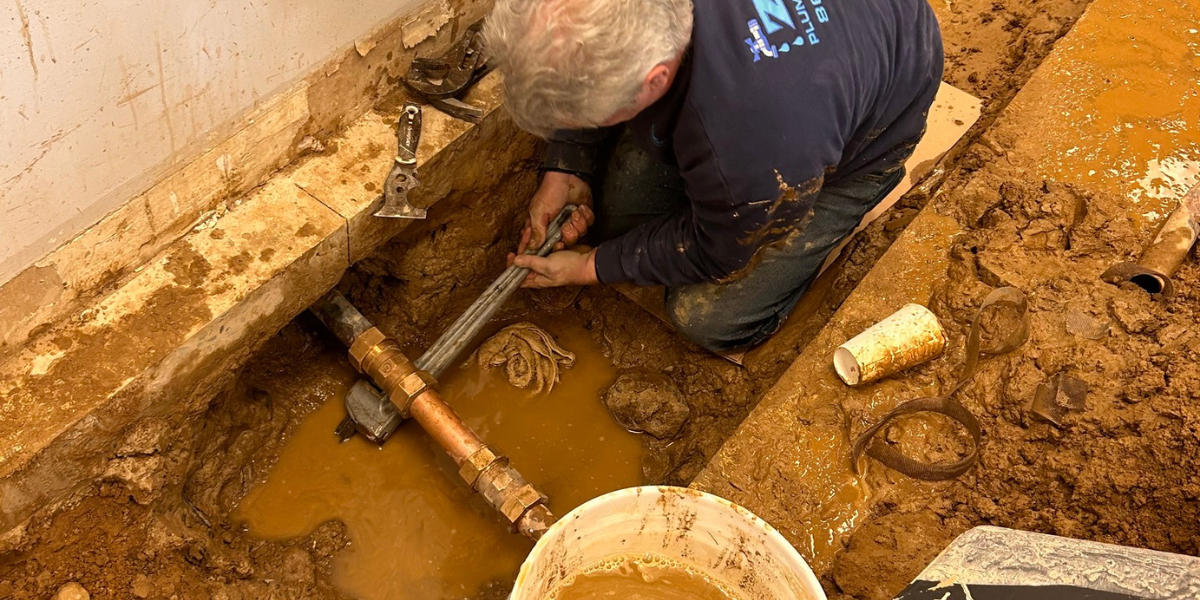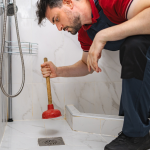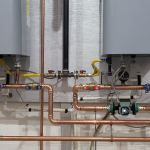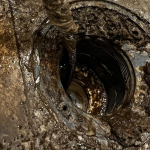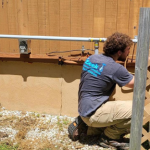For homeowners in Chatham and Madison, NJ, basement flooding is a constant concern, especially during heavy rains or sudden snowmelt. Even a small amount of water intrusion can damage valuables, weaken foundations, and lead to mold growth. The good news is that with a little preparation and routine maintenance, you can significantly lower your risk of flooding and protect your home. Here are the most effective ways to prevent basement floods in Chatham and Madison homes.
Keep Your Sump Pump in Top Shape
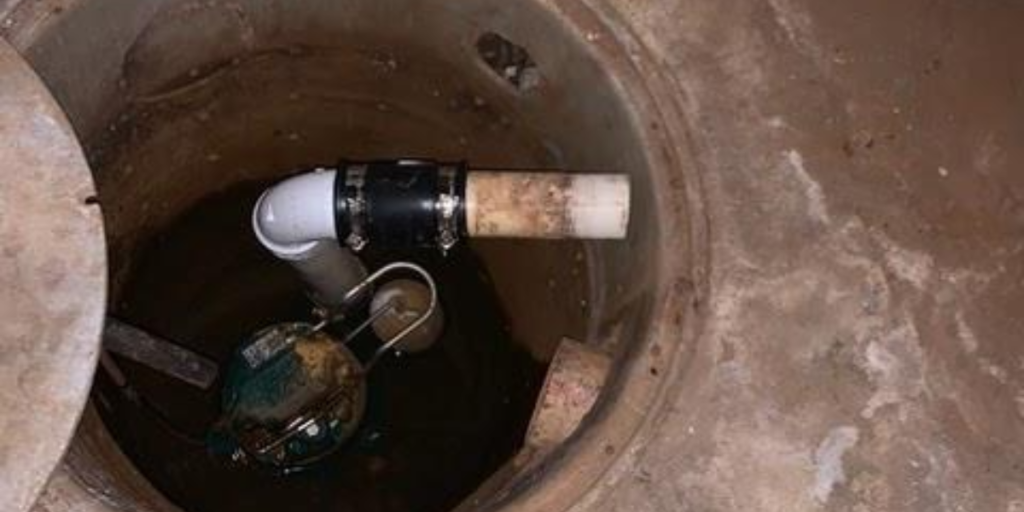
Your sump pump is the first line of defense against water buildup in the basement. Test it at least twice a year by pouring a bucket of water into the pit and making sure it activates properly. Also, check the discharge line to ensure water flows away from your home. Sump pump installation should always be paired with regular maintenance, since basement drainage systems rely on it to keep water out.
Pro Tip: Consider installing a battery backup sump pump. It’s common for power outages to happen when storms roll in, and if the power goes out, your sump pump will stop working. Contact Zeek Plumbing at (866) 635-0200 or use our book online feature to install a new battery backup today!
Install a Sewer Backflow Valve
During heavy rainstorms, municipal sewer systems can become overwhelmed, causing water and sewage to flow back into basements. A backflow prevention valve installed on your main sewer line helps stop this problem and is especially valuable for older homes in Chatham and Madison. For homeowners dealing with basement floods, this is one of the smartest flood prevention tips.
Schedule Regular Plumbing Inspections
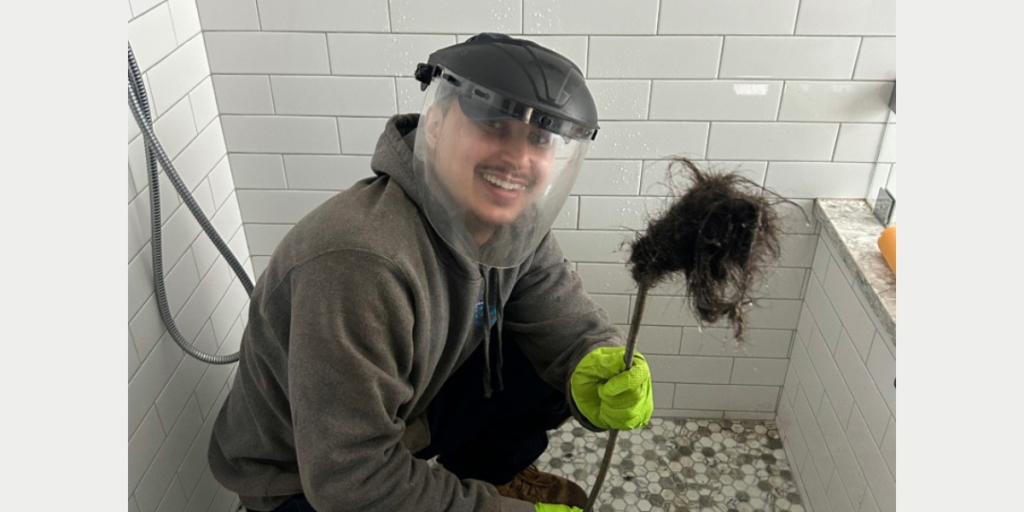
Hidden cracks in the foundation, failing sump pumps, or clogged sewer lines can go unnoticed until it’s too late. An annual plumbing inspection ensures that potential problems are caught early before they turn into costly disasters. Inspections can also help identify causes of basement flooding, such as poor basement drainage solutions or deteriorating foundation waterproofing.
Improve Grading and Gutter Systems
Water should always flow away from your home. Make sure gutters and downspouts are clear of debris and extend at least six feet from the foundation. If the ground slopes toward your house, regrading the soil can help divert water away. Gutter maintenance is one of the easiest basement flood prevention tips and should never be overlooked.
Exterior Water Management
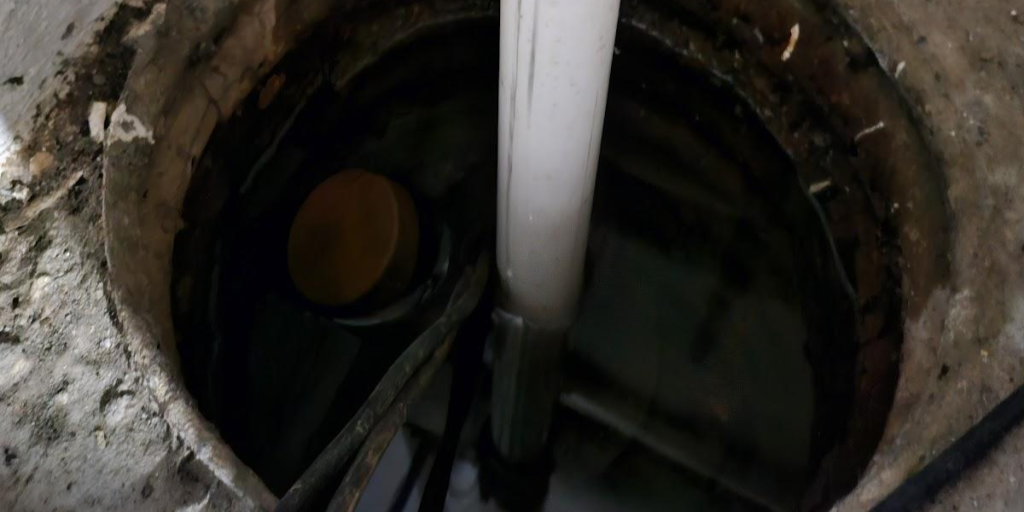
Managing surface water is the most cost-effective way to prevent basement flooding.
- Improve yard grading: Ensure the soil around your foundation slopes away from the house at a minimum rate of 2 to 3 inches for every 10 feet. This prevents water from pooling against the basement walls and reduces the risk of basement floods.
- Clean and extend gutters: Clogged gutters and downspouts can cause water to overflow and dump gallons of water next to your foundation. Clean them regularly and add downspout extensions to move the water at least six feet away from the house. Keeping your gutters in good shape is one of the easiest ways to ensure proper drainage in your basement.
- Install French drains: For persistent yard drainage issues, a French drain system can intercept groundwater and divert it away from your foundation. This type of basement drainage system is highly effective in Chatham and Madison.
- Cover window wells: Uncovered window wells can fill with rainwater and leak into your basement. Adding covers or a small drainage system can protect against this.
Interior Basement Solutions
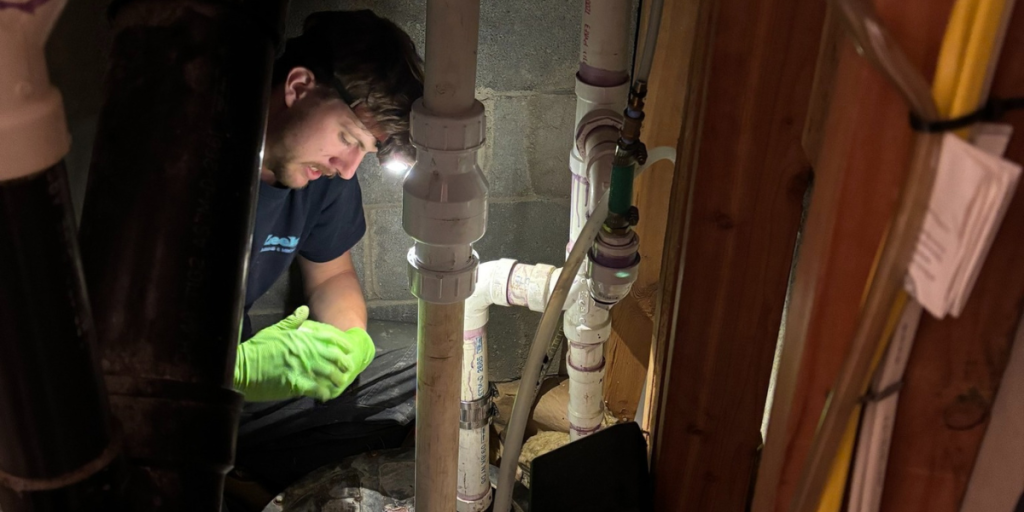
If exterior grading is not enough, an interior waterproofing system may be necessary, especially for older homes.
- Seal foundation cracks: Inspect your basement walls and floor for cracks that allow seepage. If you have minor cracks, you can easily seal them up with either epoxy or hydraulic cement. Larger or persistent cracks may require professional foundation waterproofing.
- Apply a waterproof coating: For added protection, apply waterproof masonry paint to interior basement walls after sealing cracks.
- Install an interior drainage system: A comprehensive basement drainage solution may include drainage channels around the perimeter, under the slab, capturing water, and directing it to the sump pump.
- Use a sump pump with a backup: Sump pump installation is only effective if paired with a reliable battery or water-powered backup. This ensures water removal even during power outages.
- Control indoor humidity: A dehumidifier can prevent dampness and mold, keeping the basement healthier.
Plumbing and Sewer Backup Prevention
In Chatham, Madison, and Northern NJ, some older homes are connected to combined sewer systems that can become overwhelmed during heavy rain.
- Install a backwater valve: A professional plumber can install this device on your sewer line to stop sewage backups, a common cause of basement flooding.
- Maintain sewer lines: Tree roots and household waste can block your sewer line. Regular inspections and cleaning are key flood prevention tips.
Zeek Plumbing: Local Experts in Plumbing Fixtures
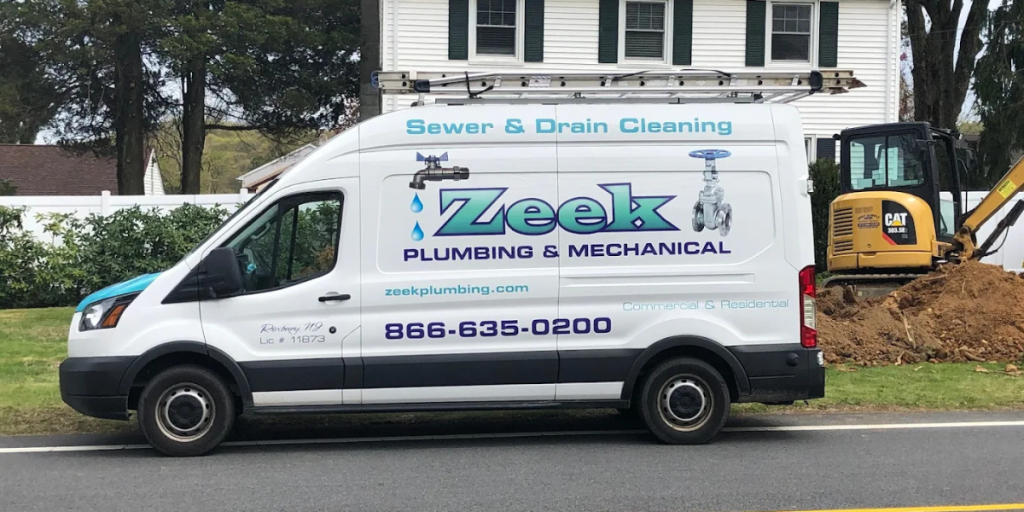
At Zeek Plumbing, we are proud to serve as residential and commercial plumbers in Morris County, NJ. Led by master plumber Rick Zeek, who has been in business since 2004, our team specializes in plumbing for homes and businesses alike.
Whether it’s sump pump installation, basement waterproofing in Chatham, or full-scale foundation waterproofing projects, we bring the same level of care and professionalism to every job. Our customers know they can count on us for basement drainage solutions, flood prevention tips, and reliable service.
As one of the leading plumbing companies in Northern New Jersey, we’re excited to help you safeguard your property from basement floods all year long.
Final Thoughts
Dealing with basement flooding is not just a minor issue; it can seriously compromise your home’s structure and put your family at risk. By maintaining your sump pump, installing a backflow valve, scheduling inspections, improving drainage, and investing in foundation waterproofing, you can keep your Chatham or Madison basement dry and safe. If you’re unsure whether your home is properly protected, contact a local plumber for a comprehensive basement waterproofing Chatham assessment. Contact Zeek Plumbing at (866) 635-0200 or use our book online feature to get your plumbing checked today!
Frequently Asked Questions (FAQ)
Q: How frequently should I test my sump pump?
A: At least twice a year, typically once in the spring before heavy rains and once in the fall before winter storms. Proper sump pump installation and testing are vital parts of basement drainage systems.
Q: Do I really need a battery backup for my sump pump?
A: Not necessarily, but since most floods happen during storms, a power outage can leave your basement unprotected without a backup system. Many basement waterproofing Chatham specialists recommend one.
Q: Are sewer backflow valves required in Chatham or Madison?
A: Not always, but they’re highly recommended for flood-prone neighborhoods and older homes with aging sewer connections. They help prevent basement floods caused by overwhelmed municipal systems.
Q: How can I tell if my house’s grading is a problem?
A: If you see water pooling near your foundation after heavy rain, or your basement smells damp, you may need to improve grading, extend downspouts, or install additional basement drainage solutions.
Q: How often should I have a plumbing inspection?
A: Once a year is best. Regular inspections help identify causes of basement flooding early, giving you time to fix basement drainage systems before problems worsen.
